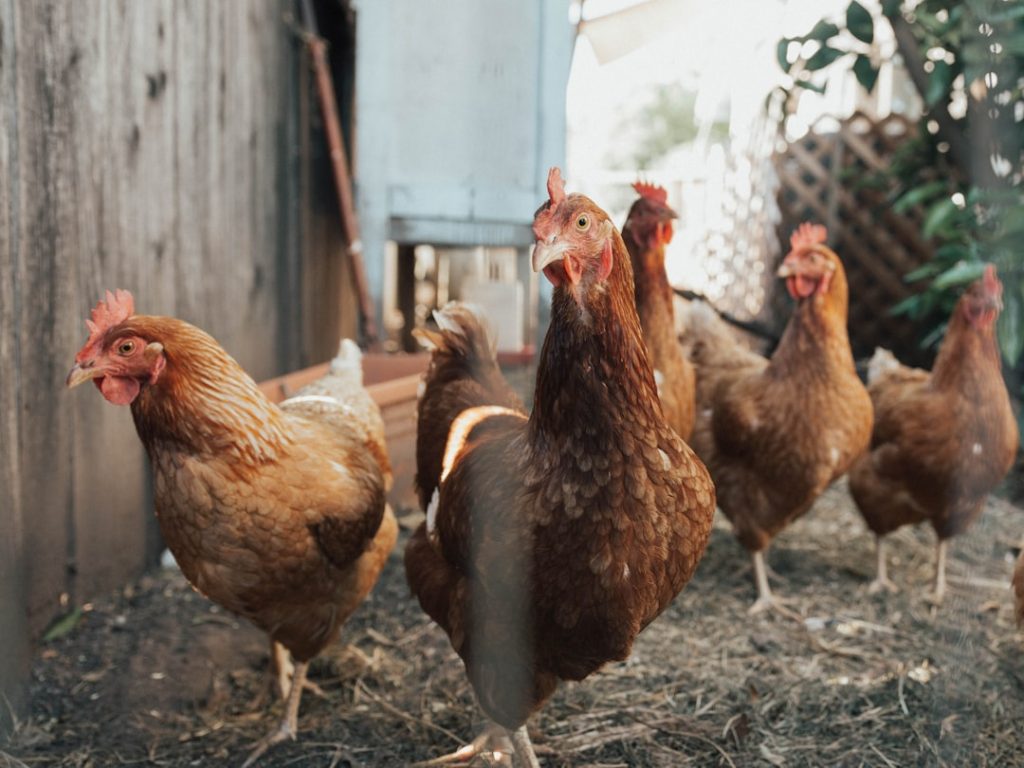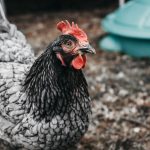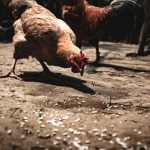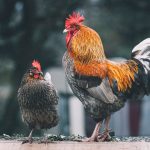Proper coop maintenance is crucial for poultry health and well-being. Regular inspections of the coop structure are necessary to ensure security and identify potential hazards. Check for signs of wear and tear, such as loose or rotting boards, and make prompt repairs.
Predator-proofing the coop is essential for bird safety, which may involve reinforcing with hardware cloth and securing all doors and windows. Maintaining a clean and dry interior is another vital aspect of coop upkeep. Regularly remove soiled bedding and replace it with fresh, clean material.
Keep nesting boxes clean and collect eggs frequently to prevent soiling or breakage. Provide adequate roosting space for bird comfort, which may require adding roosting bars or maintaining existing ones in good condition.
Table of Contents
Key Takeaways
- Regularly clean and maintain the coop to ensure a healthy environment for the chickens
- Establish a regular cleaning schedule to prevent the buildup of dirt and bacteria
- Consider using the deep litter method to naturally manage waste and maintain a clean coop
- Ensure proper ventilation in the coop to prevent moisture buildup and promote air circulation
- Use odor control products to keep the coop smelling fresh and clean
- Compost chicken manure to create nutrient-rich fertilizer for your garden
- Schedule regular health check-ups for your chickens to prevent and address any potential issues
Regular Cleaning Schedule
Daily Tasks
Daily tasks include removing soiled bedding, cleaning waterers and feeders, and collecting eggs. These tasks help maintain a clean and hygienic environment for your birds.
Weekly and Monthly Tasks
Weekly tasks involve thoroughly cleaning the coop interior, including sweeping out debris, scrubbing surfaces, and replacing bedding. Monthly tasks include a more thorough inspection of the coop structure, checking for signs of wear and tear, and making necessary repairs.
Safe and Effective Cleaning
When maintaining the coop, it’s essential to use safe and effective cleaning products. Avoid harsh chemicals that may harm your birds and opt for natural or poultry-safe cleaning products instead. Regularly disinfect the coop to prevent the spread of disease, using a diluted bleach solution or other poultry-safe disinfectants to thoroughly clean and sanitize the coop interior.
Deep Litter Method
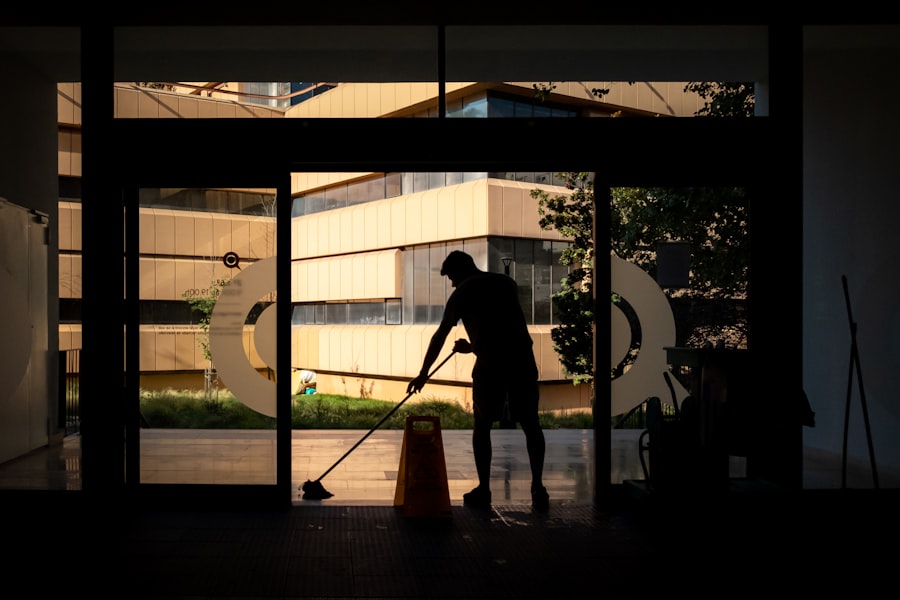
The deep litter method is a popular approach to coop maintenance that involves allowing bedding material to accumulate over time, creating a natural composting process that helps to control odors and maintain a healthy environment for your birds. This method involves adding fresh bedding on top of the existing bedding rather than completely removing and replacing it. As the bedding accumulates, it begins to break down and compost, creating a natural heat source that can help to keep the coop warm in colder months.
The deep litter method can help to reduce the amount of time and effort required for regular coop maintenance, as well as provide additional insulation for your birds. However, it is important to monitor the bedding regularly to ensure that it does not become too compacted or soiled. If the bedding begins to develop an ammonia odor or becomes excessively soiled, it may be necessary to remove some of the bedding and add fresh material to maintain a healthy environment for your birds.
Proper Ventilation
Proper ventilation is crucial for maintaining a healthy coop environment. Good ventilation helps to remove excess moisture, ammonia, and other airborne pollutants from the coop, which can help to prevent respiratory issues and other health problems in your birds. Adequate ventilation also helps to regulate temperature and humidity levels within the coop, which is important for the comfort and well-being of your birds.
Ensuring proper ventilation in the coop may involve installing vents or windows that can be opened and closed as needed to allow for airflow. It is important to provide ventilation without creating drafts that can cause discomfort or stress for your birds. Additionally, it is important to regularly clean and maintain vents and other ventilation systems to ensure that they are functioning properly.
Odor Control Products
Odor control products can be useful for maintaining a fresh and hygienic coop environment. There are a variety of products available that can help to neutralize odors and reduce ammonia levels in the coop. This may include natural products such as diatomaceous earth or zeolite, which can help to absorb moisture and odors, as well as commercial poultry-safe odor control products.
It is important to use odor control products safely and according to the manufacturer’s instructions to avoid any potential harm to your birds. Additionally, it is important to address the root cause of odors in the coop, such as soiled bedding or inadequate ventilation, rather than relying solely on odor control products.
Composting Manure
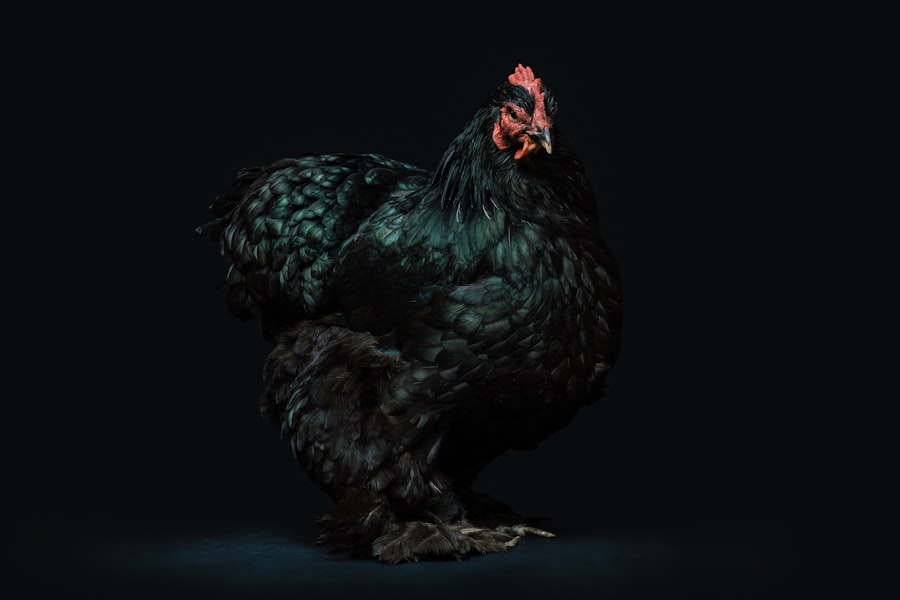
Creating a Designated Composting Area
To compost manure from your poultry flock, it is important to create a designated composting area away from the coop and any water sources. This may involve building or purchasing a compost bin or pile where manure can be added along with other organic materials such as straw or yard waste.
Turning and Aerating the Compost Pile
It is important to regularly turn and aerate the compost pile to promote decomposition and ensure that it reaches a sufficient temperature to kill pathogens.
Benefits of Composting Manure
By composting manure, you can create a nutrient-rich fertilizer that can be used to improve soil health and fertility, while also reducing waste and odors associated with poultry farming.
Regular Health Check-ups
Regular health check-ups are essential for maintaining the well-being of your poultry flock. This may involve regular inspections of your birds for signs of illness or injury, as well as providing routine preventative care such as vaccinations and parasite control. It is important to monitor your birds’ behavior, appetite, and overall condition on a regular basis to identify any potential health issues early on.
In addition to regular visual inspections, it is important to establish a relationship with a veterinarian who specializes in poultry care. A veterinarian can provide guidance on preventative care, diagnose and treat illnesses or injuries, and provide valuable information on maintaining the health of your flock. Regular health check-ups can help to ensure that your birds remain healthy and productive members of your flock for years to come.
If you’re looking for tips on how to keep chickens from smelling, you might also be interested in learning about how to keep your chicken coop clean and odor-free. Check out this article on how to use a chicken coop trampoline to help keep your coop clean and reduce unpleasant odors.
FAQs
What are the main causes of chicken coop odor?
The main causes of chicken coop odor are accumulated droppings, wet bedding, and poor ventilation. These factors can lead to the buildup of ammonia and other odorous compounds.
How can I prevent chicken coop odor?
To prevent chicken coop odor, it is important to regularly clean out droppings and soiled bedding, ensure proper ventilation, and use absorbent materials such as straw or wood shavings in the coop.
What are some natural odor control methods for chicken coops?
Natural odor control methods for chicken coops include using herbs such as lavender and mint, adding lime to the coop bedding, and using diatomaceous earth to absorb moisture and odors.
Are there any commercial products available to control chicken coop odor?
Yes, there are commercial products such as odor-neutralizing sprays and additives for coop bedding that can help control chicken coop odor. It is important to follow the manufacturer’s instructions when using these products.
How often should I clean my chicken coop to prevent odor?
It is recommended to clean the chicken coop at least once a week, removing soiled bedding and droppings, and replacing it with fresh, dry bedding. Regular maintenance will help prevent odor buildup.
Meet Walter, the feathered-friend fanatic of Florida! Nestled in the sunshine state, Walter struts through life with his feathered companions, clucking his way to happiness. With a coop that’s fancier than a five-star hotel, he’s the Don Juan of the chicken world. When he’s not teaching his hens to do the cha-cha, you’ll find him in a heated debate with his prized rooster, Sir Clucks-a-Lot. Walter’s poultry passion is no yolk; he’s the sunny-side-up guy you never knew you needed in your flock of friends!

